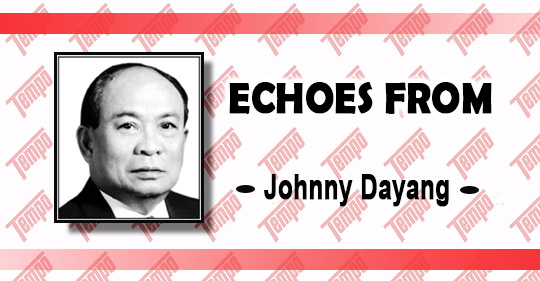BY JOHNNY DAYANG
*
For trying to account the state of the country’s health capacity in times of pandemic, the medical frontliners, instead of being praised for their efforts, was accused of demeaning the government for not directly reporting their appeal to the President Over 80 medical associations asked for the return of Mega Manila to enhanced community quarantine status (modified was approved) as a way of giving respite to overworked health institutions and workers. The petition, coming as it was from the country’s brightest and the best in the medical profession, was a clear declaration that despite calls from the State for medical workers to enlist, even baiting them with hefty bonuses, the recruitment has miserably failed.
In fact, this was precisely the reason why the plea was pushed because the overtasked medical workers have already been working in 12-hour shifts and the hospitals, with COVID-19 positive cases already breaching the 100,000 mark, spilling over with pandemic patients.
The work at the frontline is not about economics or living with the pandemic as some Cabinet officials suggest; it is about containing the spread of the virus while a vaccine has yet to be found. If the virus is effectively contained, expect the economy, already battered by so many expert projections and emotional calculations, can open with more productivity.
The ECQ appeal, likewise, is about giving rest to those who bravely confront the disease.
With frontliners down, can the Inter-Agency Task Force for Emerging Infectious Diseases offer relief? Certainly, the generals cannot bring in soldiers to start strafing an unseen enemy!
By taunting the medical frontliners, the Palace has neglected the reality that medical workers are not automatons and are subject to exhaustion and illness. Because their number has not risen given the letdown in recruiting doctors, nurses, and medical technologists to join the fight against the virus, expect these brave souls to become the next COVID-19 victims.
In a worst-case scenario where a quarter of the number of individuals and institutions manning the medical frontline decide to forcibly take a rest for their own good, what solution does the government has to offer?
The grant of MECQ, though approved with a mouthful of insult, partly defines the rationality of the appeal, which is sounder than the overtures of some IATF honchos who push their choices even if these are contrary to accepted medical standards.
The state must do away with unreal forecasts; instead, it must embrace the gospel truth that medical workers experience while in sickbays. This is more vital than designing motorcycle dividers or arresting and filing charges against the hungry and the homeless. Better still, the
President should not construe the appeal, sent directly or not to him, as an affront.


